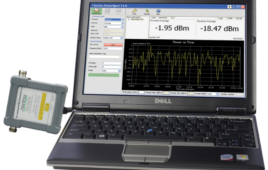Not a week goes by without reports on security gaps, data theft or hacker attacks. Both businesses and private users are becoming increasingly uneasy. However, when it comes to technologies like cloud computing, trust and security are essential if we intend to use data and applications that are flexible, cost-effective and above all, mobile. That’s why Fraunhofer researchers are working on a series of security solutions that they will present in Hall 26, Booth E08.
A control center for the cloud
Where are my data? How secure and accessible are they? Are the terms of compliance being upheld? These questions are of primary concern to any IT manager when introducing or using cloud computing. To help cloud users and providers maintain constant oversight over cloud applications and data security, scientists at the Fraunhofer Research Institution for Applied and Integrated Security AISEC have developed the Cloud Control Center. It provides global monitoring of all utilized cloud services and reliably assesses their security.
The application compiles the key figures available for a cloud ecosystem. It filters, aggregates and interprets them in order to establish meaningful status reports about the entire cloud system in use. Security status information is provided to administrators and managers in a clearly legible graphic display on an individually customized dashboard. At a glance, the cloud-user has information about bandwidth that can be used to retrieve data from the cloud, or about the storage location and volume of data, or about the level of utilization of the capacity purchased.
Secure cloud back-up
Many companies also have to contend with security concerns related to inadvertent data leakage and dependency on cloud providers.
This is why the experts at the Fraunhofer Institute for Secure Information Technology SIT designed the OmniCloud software. It makes every back-up solution cloud-capable and it ensures that all data are encrypted before delivery to the cloud. “Even in the cloud, sensitive information is safeguarded against unauthorized third-party access,” says Michael Herfert, head of the Cloud, Identity and Privacy department at SIT. “At the
same time, OmniCloud works like an adapter that interacts with the various cloud providers and knows their different programming interfaces.”
Development of this solution was prompted by a recent SIT study on cloud-service security. The study showed that no supplier was satisfying all security requirements; on multiple occasions, the authors gained access to sensitive personal data not intended for the general public. Cyber criminals would be able to use a few cloud storage services in order to spy out data or put malware into circulation.
Mobile workstation of the future
Another important issue is confidence not only in the security, but also in the handling of the technology itself. For this reason, the Fraunhofer Institute for Industrial Engineering IAO designed the “Cloud Workpad” mobile IT workstation. It demonstrates what can be achieved today in a practical setting limited exclusively to public cloud services. It reveals the boundaries between what is practical and what is feasible, such as in the interoperability of services or in the areas of security and data protection.
Hardly any applications had to be installed on the end device at the mobile IT workstation. The user accesses Software as a Service applications only, which are available via the Internet. Those who are interested in the cloud should familiarize themselves with the potential and the advantages of new technologies and usage patterns, on the one hand. On the other hand, the “Cloud Workpad” is intended to explore the limits of such services in the field, and to show where action is needed in order to eliminate these constraints.
Posted by Janine E. Mooney, Editor
April 16, 2012




